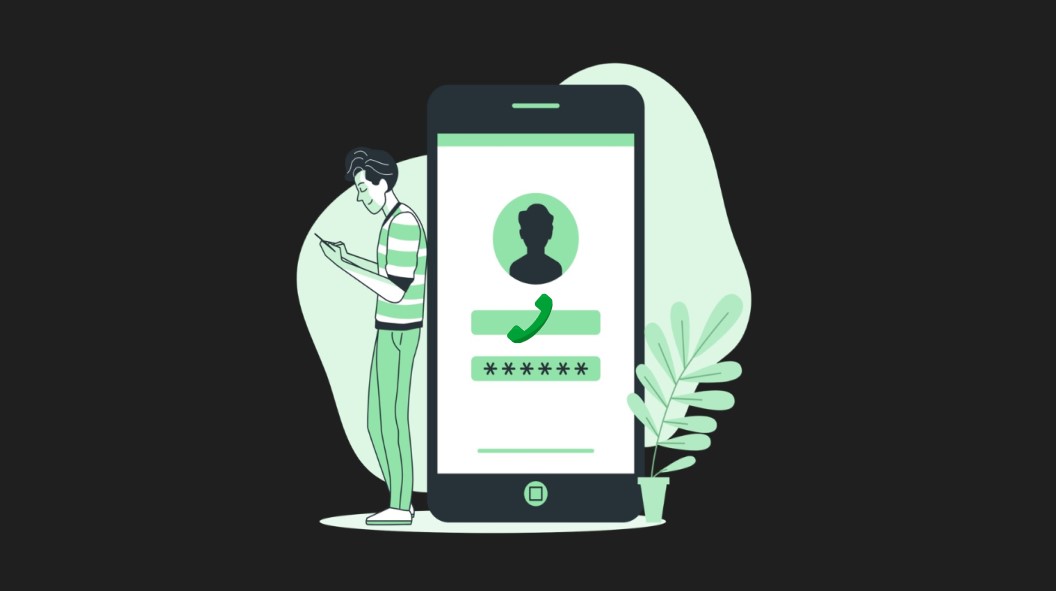

If you are concerned about information security on the network, you need to know some important methods that can ensure your anonymity. For now, we will talk about mobile phones, namely based on the Android operating system. Today, using a mobile phone is an integral part of our daily life, and few people know that this device not only brings comfort and entertainment, but also a privacy hazard. Therefore, we decided to tell you by which methods and how exactly you can be identified, especially if someone is very seriously interested in you. Identification methods can be divided into two types: hardware and software, they, in turn, are also quite diverse. In fact, if you find out what a mobile phone is, you can get quite serious paranoia, but everything is not so bad, it is enough to follow simple rules and remember them, especially when you are doing something that is not very legal. One of the basic methods of identifying a person by phone number is search engines – it’s quite simple. There is nothing special about this, registration in social networks, messengers, and generally anywhere on the Internet leaves traces about you. Name, login, e-mail – finding this information is not very difficult. To date, there have been many software tools that can search for information at once in all known Internet resources.

One of the basic methods of identifying a person by phone number is search engines – it’s quite simple. There is nothing special about this, registration in social networks, messengers, and generally anywhere on the Internet leaves traces about you. Name, login, e-mail – finding this information is not very difficult. To date, there have been many software tools that can search for information at once in all known Internet resources. Social networks also collect information about you when you register. In order to get information about a phone number, it is enough to save it in the phone book without signing it. In a social network or messenger, on the device, enable the synchronization option with the phone book and that’s it. With a high probability, more information will become known about you, and then everything depends on the intentions of the one who is interested in you.
The method usually used by special law enforcement services is information not only about your phone number, but also about the physical device itself. Each mobile phone has its own personal identifier – IMEI(International Mobile Equipment Identity), each SIM card also has a personal identifier -IMSI (International Mobile Subscriber Identity). When the device is turned on for the first time, this data is automatically transmitted to the cell tower and registered in the mobile operator’s database. With the help of this data, it is possible to receive information about your location, your correspondence, and listen to your conversations.
In order to avoid deanonymization, you should not use your personal phone number and the phone itself for your work or dark affairs, for this it is enough to buy a simple push-button phone and a new SIM card and turn it on only when necessary. Or you can rent a virtual phone number to receive SMS from any country on the Internet. Today, there are many resources that offer such a service, for this it is enough to enter a query in the Google search engine, for example “virtual phone number”, so it will be very difficult to identify you. You should not use your personal data when registering on the Internet, for this you can connect imagination and reason.
With the help of specialized software, cybercriminals can hack your device by downloading-a special Exploit file, and see which networks you have connected to. This information is very important because these networks are trusted by your phone and it will connect to them automatically. If possible, after creating such a network, your phone will connect to it automatically. What exactly are you risking in this case? After hacking your phone, criminals can steal personal data, money, by sending sms to private toll numbers, intercept and redirect phone calls, access bank data, send or download files, monitor what you are doing in real time . Criminals (or FSB) can also get MAC address of your device, and track your location using Wi-Fi radars.
In order to avoid hacking a mobile phone, it is enough to follow the basic rules: firstly, turn off these functions when you do not use them, and secondly, if possible, connect only to verified networks, especially in crowded places. Of Bluetooth, in the device settings you can select the mode “Available only for connected devices”,in this case, it will not be possible to connect to you.
GPS is a global positioning system that allows devices in almost any part of the world to quickly and accurately determine their location, which is based on the analysis of signals from satellites. Of course, satellites only transmit signals, and the satellite operator and the GPS system do not know exactly where the device is, or how many people are currently using the system.
Usually, tracking takes place with the help of programs that have been launched on the user’s phone. The program asks the phone’s operating system for its location, which is determined using GPS. In turn, the operating system asks the user if he wants to share his location before a specific application can use it. If allowed, then the program can transmit location information to anyone over the Internet. It is also necessary to take into account the fact that geo-location can be leaked using special scripts (geo-logger), they usually bypass the user’s permission and directly send your coordinates, this, of course, is very unsafe for your privacy.
In order to avoid the leakage of information about your location, on the basis of the Android OSyou need:
Turn offGPSin the additional menu, “swiped” to the bottom.
Go to settings – location– disable.
Therefore, it will not be superfluous to set up an account and disable all possible trackers at the link: https://myactivity.google.com/u/2/myactivity
Turn off GPS or not – each user decides independently. Such manipulations are quite simple to perform, the main thing is to follow the instructions. If necessary, geolocation can be turned on at any time.

If you are used to spending a lot of time on your phone, reading some news or anything in the browser, you should know that you can also be identified very easily. You probably know that almost every site includes some form of content personalization . Namely, suggested products if you visited an online store, or people you may know or want to connect with on social networks, recommended videos, ads that know what you need, news articles that you interested and so on. Personalization of content has become a part of our everyday life, and we often do not think about the threat it poses. Let’s take a look at exactly how web servers can identify us. What information can be found out about your device, let’s look at the examples of the site https://whoer.net .
When working on the Internet, browsers receive unique data from any site. These data are stored on your device (Cookies). In this way, web portals know exactly who visited the site. The cookies technology is replaced by the supercookies technology. Next, the provider notices your data packets and the user’s anonymity disappears. Some web portals have learned to identify the user without the use of cookies, based on the fonts used, browser name, screen extension, operating system and other parameters (Fingerprint).
IP address, Provider, Host, Address, Operating system, DNS address, Location, Browser User Agent, Local Time and System TimeLanguage, Cookie – All this can be found out about you by simply following the link.
A very interesting method that allows you to find out information about you, so-called loggers. IP Loggeris a program (script) installed on the server, example: https://iplogger.org/location-tracker. Allows you to determine the geolocation of someone who will follow a link previously created on the site. However, if you open the link on a mobile phone, the operating system will warn you about sharing your geolocation by GPS. If access is available, the program will focus on data from GPS,if not– relative to the IP address.
As a rule, this is a 1×1 pixel file that is attached to an Internet page or to the body of an e-mail. They are most often used in the arbitrage direction, and allow you to get information about which products are in greater demand, from which resource a person went, how long he stayed on the page, the visitor’s geolocation, IP address, etc. In some cases to verify email. It is not difficult to understand that such information is quite important and can be used not only for these purposes, but also for malicious intent by cybercriminals. Dealing with such trackers is hard enough as far as a mobile phone is concerned, but one of the safest methods would be to use anti-detection browsers + VPN, and disable the display of images in e-mails.
If you list all identification methods, then you can already write a whole textbook. A mobile phone is a bunch of sensors and add-on modules, and almost every one of them can “take” some information. So, we told you about only some of them and gave examples of how you can protect yourself from them, most of them are suitable for saving your anonymity

